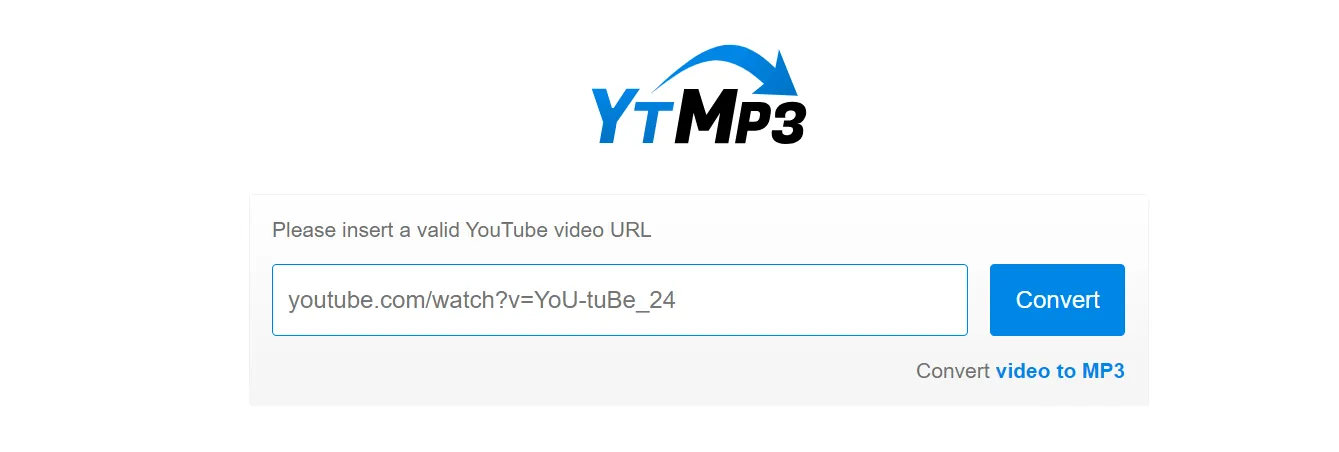Introduction:
The way that people consume entertainment evolved significantly in the age of technology. Downloaded materials as well as streaming platforms have replaced tangible forms like DVDs and compact disks. A noteworthy development in this progression has been the emergence of YouTube to MP3 converters. Because these apps can grab sound from YouTube videos and transform it to MP3 files, users may now enjoy their preferred material offline. This has led to the tools’ rapid growth. This article explores the origins, features, ramifications for the law, and cultural significance of YouTube to MP3 converters.
The Development of MP3 to YouTube Converters:
The Initial Years of Digital Music
The MP3 files format emerged during the middle of the 1990s as a breakthrough way for people to exchange and save sounds, while using that, the entertainment landscape began to shift from traditional to digital in the latter part of the 20th century. Due to its ability to compress data, the format was perfect for distribution over the internet since it could shrink file sizes Significantly lacking sacrificing the level of audio. Profiting from this, peer-to-peer (P2P) networks such as Napster Revolutionized his field by enabling extensive song sharing.
The Growth of YouTube with Its Effects
Through video songs and trailers for films created by users’ material, YouTube soon rose to prominence as the most popular site for sharing videos. It was founded in 2005. The site became a main resource for finding and listening to music because of its large collection and simplicity of use. YouTube was an excellent tool for streaming, but it didn’t support transferring recordings for offline use out of the box. YouTube to MP3 conversion programs immediately filled this gap in the market.
Creation of Conversion Instruments
When YouTube became common, initial adapters from YouTube to MP3 developed. Simple steps to take advantage of these tools were to enter the website URL on a clip from YouTube, extraction the soundtrack, and download it as an MP3. Since most early converters were web-based and didn’t require software to be installed, they were widely available. More sophisticated desktop and mobile apps with more features—like batch uploads and settings for better audio quality—rose as time went on.
How YouTube to MP3 Converters Operate?
Technical Synopsis:
The way YouTube conversion programs work is that they take the audio track out of the YouTube video.
There are typically multiple steps in the process:
- URL Evaluation: The conversion application uses the web address that someone submits to find the clip on YouTube.
- Downloading the video: The program gets the video content from the hosting site of YouTube.
- Audio Removal: The sound component has been removed from a uploaded video file through processing.
- Transformation: The sound converter has been employed to transform the obtained audio into an MP3 file.
- Downloadable: The consumer can now obtain a finished MP3 file.
Changes and Attributes
The functions offered by various converters vary. Some let users select their desired bitrate (such as 128 kbps, 192 kbps, 320 kbps) and offer high-quality audio alternatives. Some facilitate batch processing, which allows for the concurrent conversion of various files. Moreover, some tools allow users to alter metadata, allowing them to change details like album, artist, even composition title.

Youtube To mp3
A Legally and Moral Perspective:
Copyright Concerns
The main legal issue with translators from YouTube to MP3 is copyright violation. The majority of YouTube videos, particularly those with music, are covered by copyright. Unauthorized downloads and conversions for these clips into MP3 files are generally prohibited by YouTube’s terms of service and constitute infringements on the intellectual property of creators of copyright and material providers.
YouTube’s Reaction
Such translation facilities have always been rejected by YouTube and Google, the business that owns it. According to their claims, these services are in flouting YouTube’s conditions of service, which forbid downloading content without express consent. YouTube has been implementing technological measures, like changing its video code and inserting tactics that make extracting videos more difficult, to frustrate converters.
Legal Proceedings and Economic Reaction
A number of well-known court cases have been filed targeting YouTube to MP3 converter providers. For example, YouTube-mp3.org, probably of that biggest conversions during that point, was shut down during 2017 as a result of a lawsuit that the Recording Industry Association of America (RIAA) brought. Such converters are seen by musicians as a serious threat to their earnings since they encourage piracy and lessen the motivation for customers to buy music through authorized channels.
Influence of Culture and Viewpoints of Users:
Need and Acceptance:
There is still a strong sector of YouTube to MP3-to- in spite of litigation. Listening to preferred content offline is convenient for users, especially in places with pricey data packages and restricted connectivity to the internet. Furthermore, some users would rather not rely on online streaming services and build their own individual song library.
Use Cases for Ethics
Not all applications of YouTube to MP3 converters are prohibited or immoral. Licenses provided by Creative Commons or independent artists that promote downloading and distributing are used to release certain work on YouTube. Digital usage of lawfully translated educational data, freely downloadable substances, and videos created by oneself is also permissible.
Finding and Getting Access to Music
These converters have also contributed to the availability and finding of music. More musicians plus more kinds more material are accessible for users through them than through more conventional outlets. Because YouTube videos can be readily transformed and talked about, songwriters like producers may reach a wider audience by posting their work there.
Options and the Future of Listening to Digital Music:
Companies for Broadcasting
Many users have resorted to online services like the music streaming service Spotify, Apple Music, and Amazon Music, which provide large music collections and offline enjoyment possibilities, in response to the expanding appeal of YouTube to MP3 converters. These platforms, albeit they demand a subscription price, offer a legitimate and frequently superior substitute.
Services for Authorized Downloads
Legal download providers like iTunes, the Bandcamp platform, and Amazon Music provide a large selection for material to purchase those people who would rather possess the music they enjoy. Through these services, it is guaranteed that creators and owners of copyrights will be paid for their contributions.
New Technologies
As new technologies emerge, the landscape of digital music consumption keeps changing. For instance, the remuneration of artists for their work might be completely transformed by blockchain technology, which would guarantee clear and straightforward payments for downloads and streaming. In a similar vein, developments in AI and machine learning may result in increasingly complex methods for organizing and distributing digital content.
Conclusion:
Converters from YouTube to MP3 offer an intriguing nexus of culture, law, and technology. Although they provide consumers with unquestionable accessibility and convenience, they also bring up important legal and moral concerns. The future of these technologies is still unknown because the online environment changes, impacted by ongoing legal disputes, new developments in technology, and shifting customer Behavior. But one thing is certain: for years to come, the music business yet how people consume media will be shaped by the need for adaptable and easily available digital content.















Comments are closed